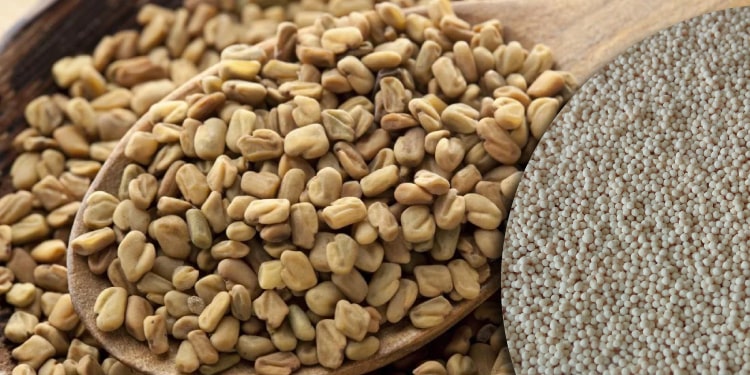
HISTORY OF FENUGRENCAP
The use of Fenugreek dates back as far as six thousand years ago. Through discoveries, Archaeologists believe this spice was used as early as 4000 BC, when remains of this herb where discovered in Tell Halal, Iraq. Fenugreek was considered to be a medicinal drug and used by the Ancient Egyptians for this purpose. They believed that Fenugreek could treat burns and induce childbirth. They also used it in mummification. The Greek physician, Hippocrates, used it as a soothing herb. Other ancient Greeks used Fenugreek as a cure for infections. The ancient Romans used it to treat fevers and respiratory and intestinal issues. They also used it to help heal wounds.
During the first Jewish-Roman war, Fenugreek was mixed with boiling oil. This mixture was used to keep invaders from entering the city. Fenugreek is often served with food during Rosh Hashanah. It is believed that eating Fenugreek is symbolic for helping one to increase their blessings in the coming year. Today, India is the world's leading producer of Fenugreek, followed by Nepal, Pakistan, Bangladesh, the Mediterranean and Argentina.
In North Africa, Asia, and southern Europe, fenugreek was traditionally used for diabetes and to increase milk supply in women who were breastfeeding. Today, fenugreek is promoted as a dietary supplement for diabetes, menstrual cramps, and other conditions and to stimulate milk production during breastfeeding
WHAT IS FENUGRENCAP
Fenugrencap is an advanced and unique technology incorporated by Umang Global where the extract of ingredients is encapsulated (coated) to make it more available and protects from environmental factors. Fenugrencap is available at various active dosage with Enteric coating (EC) and Immediate Release (IR) form, also customization is available as per the end use requirement.
ADVANTAGES OF FENUGRENCAP
- Delivery of higher level of actives
- Protects from environmental influences such as exposure to Oxygen, moisture and light
- For higher dosage of formulations
USES OF FENUGRENCAP
- May have potential benefits against cancer
- May Help to reduce diabetes
- May Help to reduce obesity
- May help to reduce the risk of high cholesterol
- May be able to help reduce the risk of high blood pressure
- May be able to help reduce the risk of heart conditions
- May help to reduce the risk of bacterial, fungal, and viral infections
- May help to reduce the risk of inflammation







